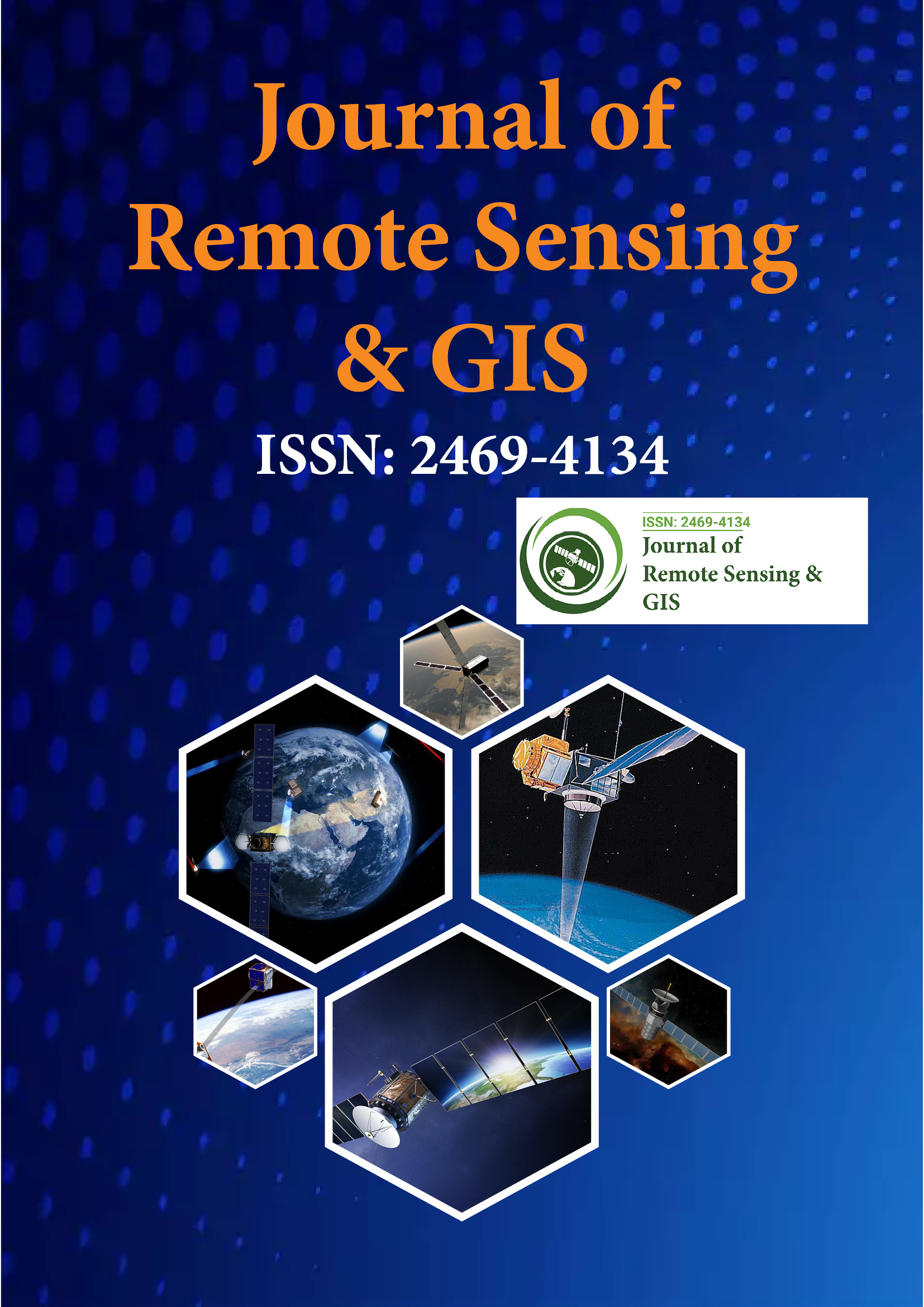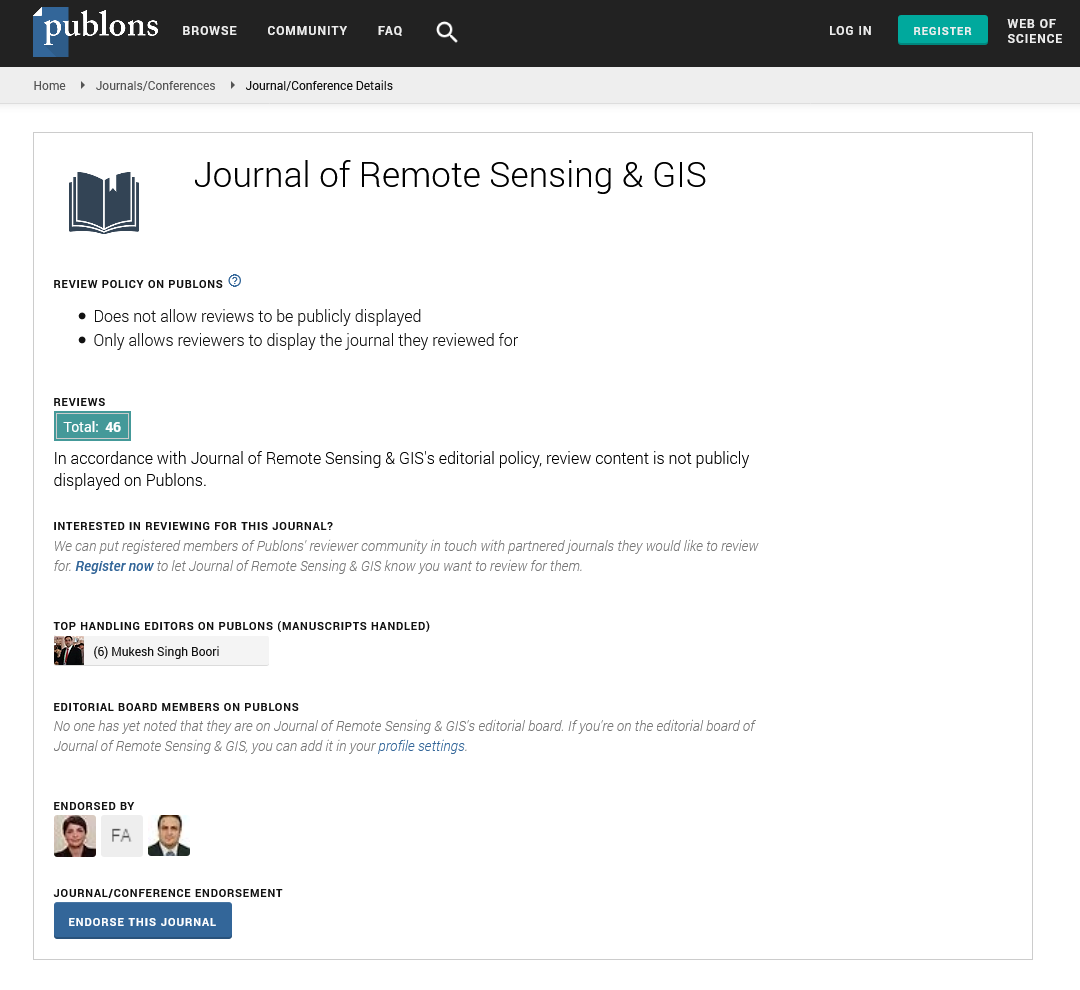Indexed In
- Open J Gate
- RefSeek
- Hamdard University
- EBSCO A-Z
- OCLC- WorldCat
- Publons
- International Scientific Indexing
- Euro Pub
- Google Scholar
Useful Links
Share This Page
Journal Flyer

Open Access Journals
- Agri and Aquaculture
- Biochemistry
- Bioinformatics & Systems Biology
- Business & Management
- Chemistry
- Clinical Sciences
- Engineering
- Food & Nutrition
- General Science
- Genetics & Molecular Biology
- Immunology & Microbiology
- Medical Sciences
- Neuroscience & Psychology
- Nursing & Health Care
- Pharmaceutical Sciences
Perceptions and preferences about energy and environmental Costs: The case of Montreal transport users
3rd World Congress on GIS and Remote Sensing
September 20-21, 2017 Charlotte, USA
Omid M Rouhani, Nayer Daher and Farhana Yasmin
McGill University, Canada
Posters & Accepted Abstracts: J Remote Sensing & GIS
Abstract:
Providing travel-related energy and environmental information to transport users is becoming increasingly relevant. However, the impact of providing such information on users‚?? travel behavior is yet to be determined. This research examines the perceptions and preferences of the fuel consumption costs, GHG social costs, and health-related air pollution costs, and the influence such information have on travel behavior. Examining the case of transport users of Montreal, Canada, with a pilot survey, we found that the respondents are generally unaware of the energy and environmental footprints of their travel. Approximately, 70% of the respondents are not able to estimate GHG social costs and health-related air pollution costs across different modes. The respondents who could provide their perceived costs generally overestimate these costs and interestingly perceive higher environmental costs for public transport (metro) compared to cars. They also prefer to receive such information in monetary units rather than in their own units (e.g., grams of emissions) and they are more comfortable in receiving the information through mobile applications over other tools/means (GPS devices, radio and so on). The research also finds that energy and environmental information can influence respondents‚?? travel decisions especially their route choices. Finally, the respondents are willing to pay an average of $6/month in exchange for obtaining the information.

